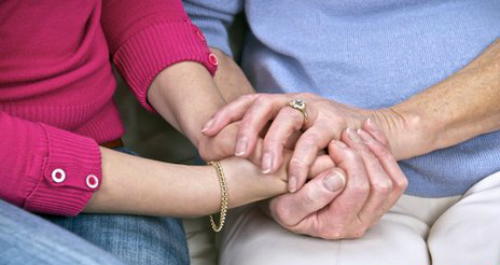The number of people living in the UK aged 100 increased by 73% in the decade to 2012, said the Office for National Statistics (ONS).
In 2012 there were 13,350 centenarians living in Britain, from 7,740 in 2002. The ONS also said life expectancy in Britain had “reached its highest level on record for both males and females”.
A newborn boy could live 78.7 years, and a girl, 82.6 years, if mortality rates stayed the same for 2010 and 2012 in the UK, it said. Meanwhile, a man aged 65 in the UK could expect to live for 18.2 years, a 40% increase in the 30 years to 2012, and a 65-year-old woman, for 20.7 years, a 25% increase.
The life expectancy gap between sexes had narrowed to four years, when it was measured between 2010 and 2012, from six years between 1980 and 1982, said the ONS.
‘Country variation’
The latest ageing figures showed the changing nature of Britain’s population, as the ONS reported more than half a million people aged 90 and over were living in the UK in 2012, a group the organisation calls the “very old”.
There were 264 women for every 100 men aged over 90, it said. Out of the 13,350 centenarians living in the UK in 2012, 660 were aged 105 years and older, while England and Wales had the most 100-year-olds.
The number of people aged 90 and over increased to 806 per 100,000 in 2012, compared to 305 per 100,000 in 1982. Male life expectancy increased by two-and-a-half years every decade since 1980 to 1982, and two years for women over the same timeframe, the ONS said.
‘Crisis’ in care
Internationally, the UK lagged only behind Spain, Italy, France and Japan for the number of 100-year-olds in its population.
In 2012, Japan had almost double the number of Britain’s 21 centenarians per 100,000 of its population.
But the ONS said: “In comparison to many other countries, the UK has relatively high numbers of centenarians.” It said Western Europe had higher rates of centenarians than countries in Eastern Europe, with Russia having four per 100,000 of its population. The ONS said this reflected Russia’s “relatively low life expectancy”.
Caroline Abrahams, charity director at Age UK, said: “Nearly one in five people in our country will live to see their 100th birthday. The increase demonstrates the true worth of advances in medicine and the increasing effectiveness of preventative treatments.”
Ms Abrahams said despite the ageing population there was a “real crisis in care” as the number of older people receiving social care support had fallen by “more than a quarter since 2005”.
She added: “It is time for politicians in all parties to act to make sure services can meet the needs of an ageing population.”
Source: BBC news


